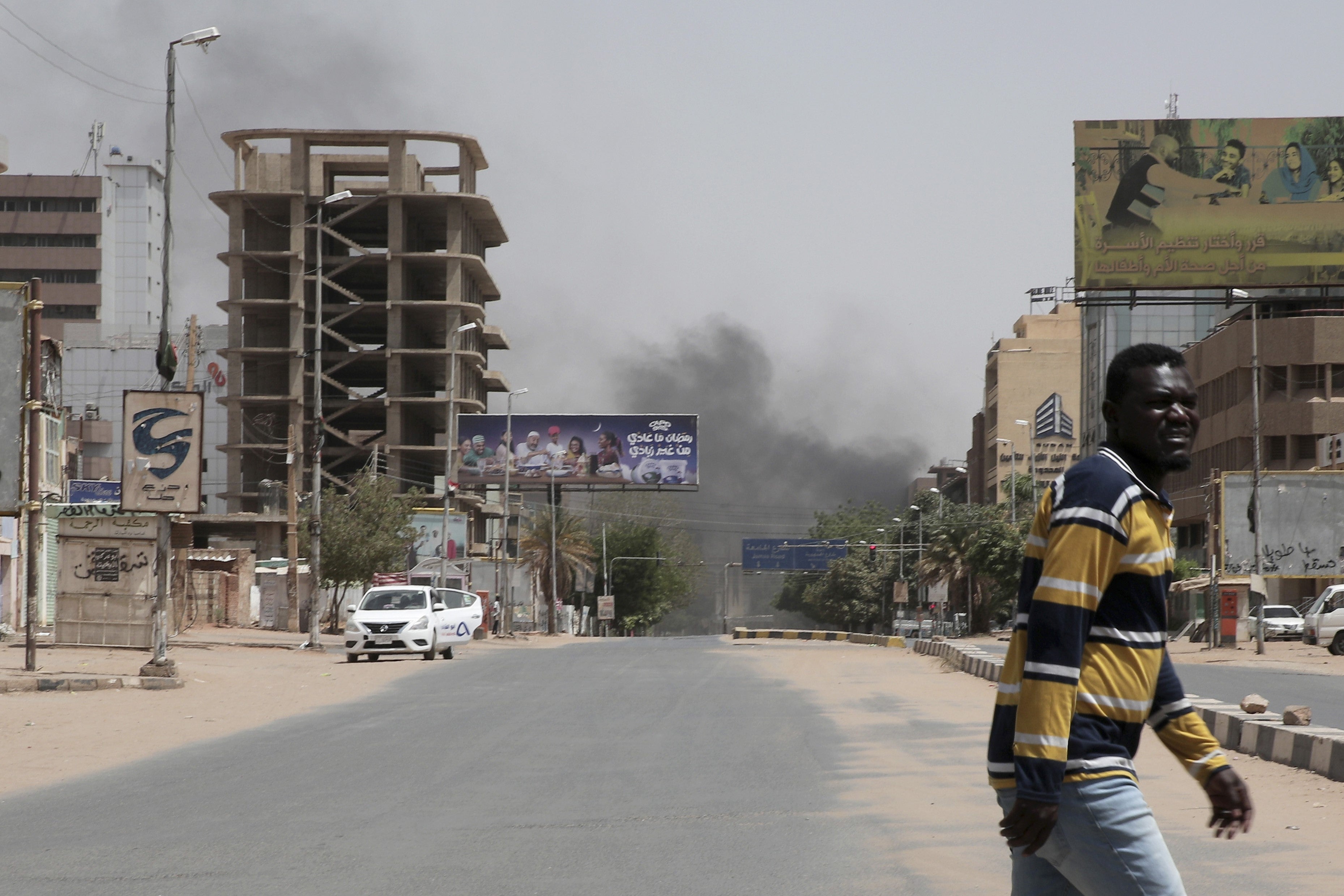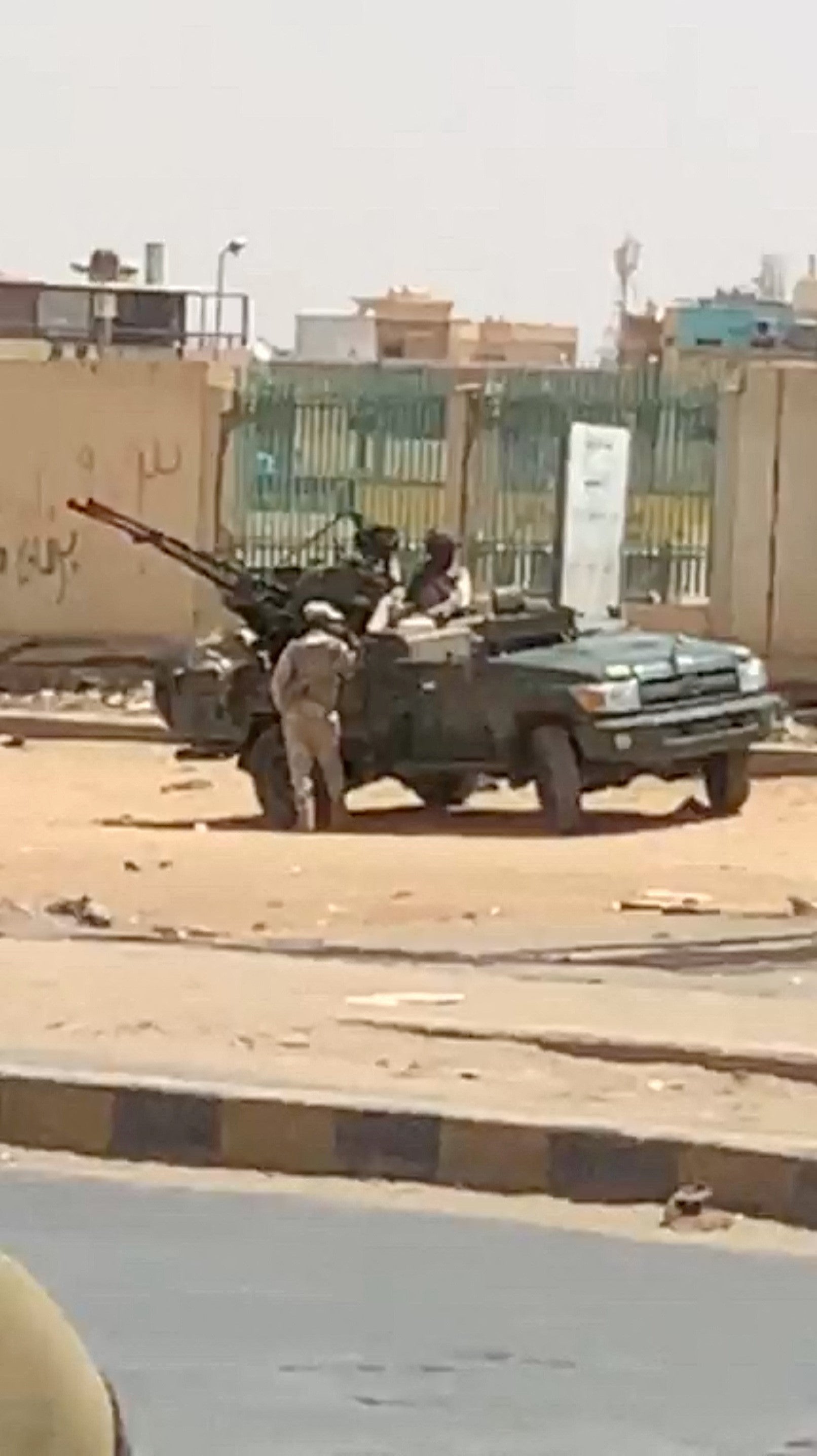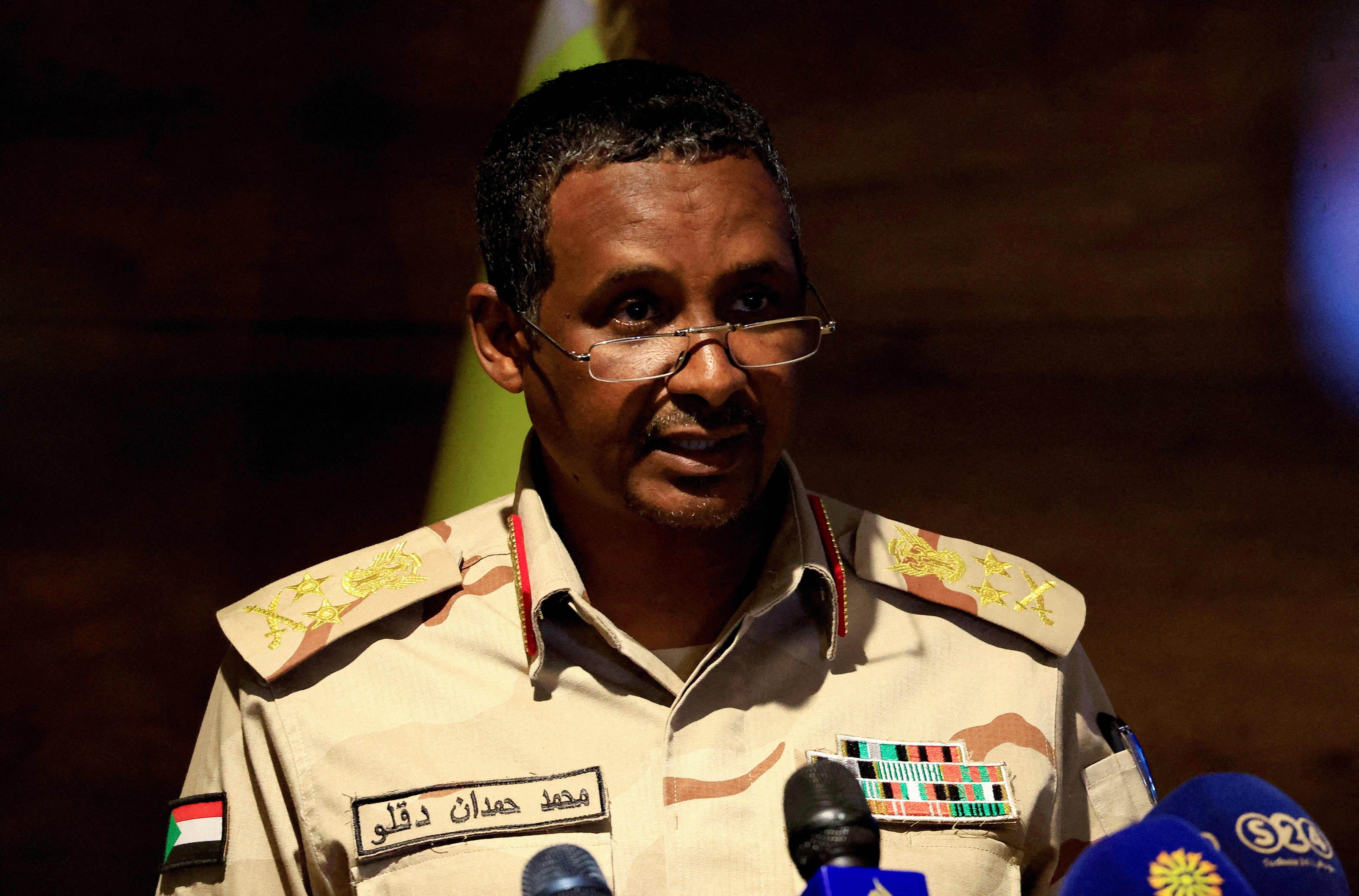Three dead and dozens injured in Sudan after clashes between army and paramilitary
Senior official said international community had failed to act on growing tensions between two sides
Your support helps us to tell the story
From reproductive rights to climate change to Big Tech, The Independent is on the ground when the story is developing. Whether it's investigating the financials of Elon Musk's pro-Trump PAC or producing our latest documentary, 'The A Word', which shines a light on the American women fighting for reproductive rights, we know how important it is to parse out the facts from the messaging.
At such a critical moment in US history, we need reporters on the ground. Your donation allows us to keep sending journalists to speak to both sides of the story.
The Independent is trusted by Americans across the entire political spectrum. And unlike many other quality news outlets, we choose not to lock Americans out of our reporting and analysis with paywalls. We believe quality journalism should be available to everyone, paid for by those who can afford it.
Your support makes all the difference.Three people have been killed and dozens injured after fighting erupted in the Sudanese capital between the country’s military and powerful paramilitary.
The clashes began on Saturday morning, with the Sudan armed forces and Rapid Support Forces (RSF) blaming the other for initiating the violence.
One official with deep knowledge of the situation told The Independent that the international community had failed to act on escalating tensions between the generals. The violence will spark fears of a wider conflict in the chaos-stricken country, which is already dealing with economic breakdown and flare-ups of tribal violence.
In a statement, the Sudan Doctors’ Committee said two civilians died at the country’s main airport and another man was shot dead in the state of North Kordofan.
The group did not specify how the two people died at the airport, which has been a flashpoint in the violence, with the two forces battling to control it. The group said dozens more were hurt around the country, with some in unstable conditions.

Residents of Khartoum told The Independent gunfire first echoed through the capital at 6am local time and plumes of smoke were rising above parts of the city.
“In my neighbourhood, RSF forces came in this morning on land cruisers with small and heavy arms,” Ahmed, 48 told The Independent from a northern part of the capital, as gunfire crackled in the background.
“They are still here now and seem like they are on standby for something. No civilians are moving - everyone is taking shelter inside the streets are empty. My 7-year-old son heard the bombing and was crying begging me not to go outside.”
He said earlier he saw Sudanese army fighter jets roar above the buildings and heard explosions, with reports RSF camps in other parts of the city had been the target.
“Everyone is extremely worried about what is going to happen. But it feels like [RSF] forces are not stable,” he added.
“Khartoum is not Darfur – Hemedti [RSF’s chief] might be able to control some areas outside the capital but his forces don’t know these streets well.”
Earlier, Sudan's paramilitary RSF said they had taken control of the presidential palace, the residence of the army chief, and Khartoum international airport in an apparent coup attempt. The RSF also said they had seized the airports in the northern city of Merowe and in El-Obeid in the west.

The army, meanwhile, said the Sudanese air force is conducting operations against the RSF. Footage from broadcasters showed a military aircraft in the sky above Khartoum, but the material could not be independently verified.
It said the RSF had tried to attack its troops in several positions after witnesses reported heavy gunfire in multiple parts of the country.
The RSF – which analysts say is 100,000 strong and is headed by former militia leader General Mohamed Hamdan Dagalo, better known as Hemedti – said its forces were attacked first by the army which it claimed had surrounded one of its bases and opened fire with heavy weapons.
The British embassy told British nationals to stay indoors, as officials closely monitored the situation.
A senior United Nations official told The Independent tensions between the Sudanese army and the RSF had been simmering for a while and that the international community had failed to act.
The UN official added in the last week there were many “SOS and May Day calls” made to the US State Department about the gravity of the impending crisis “but they were ignored”.
“The international community failed to address the largest elephants in the room,” the UN official said.
“Number one was how do you convince Hemedti to relinquish his army and stay alive and have a future in Sudan?”
Problem number two related to the political framework agreement that was designed to facilitate the nation’s turbulent transition to civilian rule, the official added.
Hemedti, the billionaire militiamen with ties to the country’s gold mines, leads the RSF, which was accused of raping and killing protesters in Khartoum in 2019 and committing genocidal violence in Darfur, accusations he denies. He currently holds the position of deputy head of Sudan’s ruling Sovereign Council while still commanding his forces which analysts say number as many as 100,000.
The UN official said the international community had failed to come up with a “landing zone” for Hemedti.
The other source of the crisis is the political framework agreement.
The official said international negotiators – including the US, Norway and the US were “pushing this framework agreement very hard they ignored [General Abdel Fattah] al-Burhan who had said they needed to open framework agreement as it is not representative enough.”
“There was an arrogance – they said they would sanction individuals who were blocking the transition.”

Civilian political parties that had signed an initial power-sharing deal with the army and the RSF called on them to cease hostilities. Separately, the Russian and US embassies also called for an end to the violence.
UN Special Representative in Sudan Volker Perthes said on Saturday he strongly condemned the eruption of fighting in the country. Perthes “has reached out to both parties asking them for an immediate cessation of fighting to ensure the safety of the Sudanese people and to spare the country from further violence,” he said in a statement.
Egypt has expressed grave concern over ongoing clashes in Sudan and called on all parties to exercise restraint, the foreign ministry said in a statement on Saturday. Saudia Arabia’s foreign ministry said it was similarly deeply concerned, calling on those involved to choose dialogue over conflict.



Join our commenting forum
Join thought-provoking conversations, follow other Independent readers and see their replies
Comments